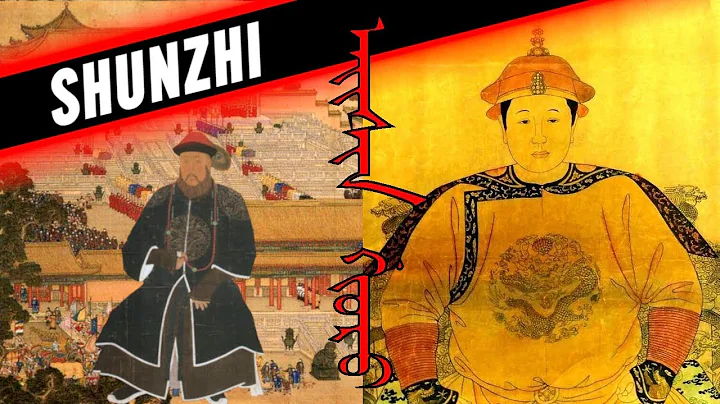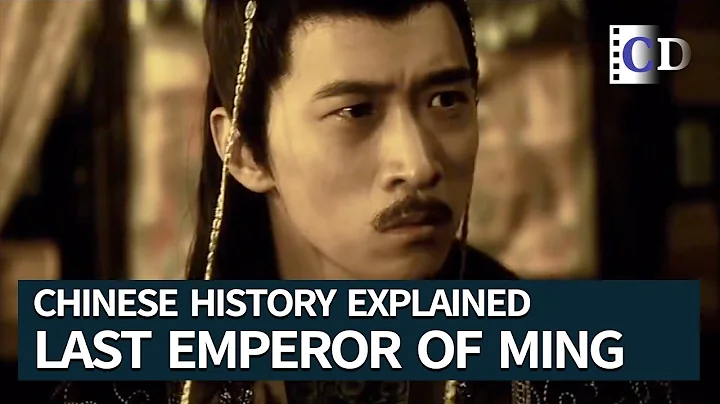1644, Li Zicheng captured Beijing, Emperor Chongzhen committed suicide. Later, Wu Sangui introduced Qing soldiers into the pass. Li Zicheng's army withdrew from Beijing. The Qing Dynasty began to rule the country, but the Ming Dynasty did not perish. The Ming Dynasty clan royal family established the Southern Ming court with the support of the Ming Dynasty ministers. It carried out a desperate resistance against the Qing Dynasty and persisted in the struggle against the Qing Dynasty and restoration of the Ming Dynasty for nearly twenty years.

Li Dingguo's film and television image
The Nanming regime has experienced three regimes: Hongguang, Longwu, and Yongli. During this period, there were several upsurges against the Qing Dynasty, and some generals who were loyal to the Ming Dynasty and capable of conquering and fighting emerged. For example, Li Zicheng's subordinates include Hao Yaoqi, Liu Tichun, Li Guo, and Gao Yigong. Zhang Xianzhong subordinates, Sun Kewang , Li Dingguo, Liu Wenxiu, Ai Nengqi and so on. Among them, the most famous general is Jin Wang Li Dingguo. This great thinker of the late Ming Dynasty Huang Zongxi commented: "In the battles of Guilin and Hengyang, Li Dingguo was captured and became king, and the world was shocked. This Wanli has been prosperous in the world since Wuwu. "Nothing can be had."

After the great thinker Huang Zongxi in the late Ming Dynasty
Li Zicheng and Zhang Xianzhong died in battle, their remaining troops joined the Southern Ming regime and raised the banner of resistance to the Qing Dynasty together with the Ming Dynasty. Among them, the most influential ones were the remnants of Zhang Xianzhong, who persisted in resisting the Qing Dynasty for the longest time. Zhang Xianzhong and Li Zicheng both had adopted sons, and Li Zicheng's adopted son performed mediocrely. However, Zhang Xianzhong's four adopted children, Sun Kewang, Li Dingguo, Liu Wenxiu, and Ai Nengqi, were all outstanding, and they inflicted heavy losses on the Qing army again and again. It performed scenes of heroic epics that made people sing and cry.
Li Dingguo (1621-1662), a famous anti-Qing general of the Yongli regime of the Southern Ming Dynasty, a national hero, and a native of Yulin, Shaanxi (or Yan'an ). He was adopted as an adopted son by Zhang Xianzhong at the age of ten. At the age of seventeen, he led more than 20,000 people to capture Xiangyang. At the age of twenty-four, Zhang Xianzhong established the Daxi regime. Li Dingguo was named General Anxi for his outstanding military exploits.
01
Liang Ke Mingwang

The film and television image of Emperor Yongli
Zhang Xianzhong's remaining troops occupied Yunnan and Guizhou and used them as bases to fight against the Qing Dynasty. This team became the main force that the Yongli regime could rely on. Sun Kewang occupied Guizhou, and Li Dingguo held on to Yunnan, training the army and developing production.
In 1652 AD, in order to eliminate the anti-Qing forces in the Yunnan-Guizhou region, the Qing Dynasty ordered the two traitors Pingxi King Wu Sangui and Dingnan King Kong Youde to attack in two directions in an attempt to eliminate them in one fell swoop. Li Dingguo sent troops to Hunan, Liu Wenxiu attacked Sichuan, and Sun Ke was expected to stay in the base area.

Hong ChengchouSeated Statue
In March, Li Dingguo led 80,000 infantry and cavalry and 50 war elephants to the expedition. Military discipline was strict along the way, and no one committed any crime. Li Dingguo led his army to the counties of Keyuan (Zhijiang, Hunan), Jing (Jingxian, Hunan), and Wugang. Kong Youde sent troops from Guilin to rescue. Li Dingguo rushed across the river from Maple Ridge to Baoqing before he could help the enemy, and wiped out 5,000 Qing troops.
In June, Li Dingguo divided his troops into three groups to attack Guilin. After the left army captured the whole state, they joined forces and went all the way to the gate of Guilin. Kong Youde was defeated and had no way out. He ran back to Guilin City and committed suicide. Li Dingguo captured Guilin and then all of Guangxi.
Li Dingguo divided his troops to stay in Guilin, and then led his army to attack Hunan. Since Li Dingguo sent troops in July, he has recovered two states and sixteen counties, and roughly three thousand miles of land has returned to the hands of the Nanming regime.
He lost Guangxi and Hunan one after another. The Qing government was very angry. Hong Chengchou and Prince Jingjin Nikan were sent successively, leading 150,000 elite troops to approach Changsha menacingly. On November 19th, Nikan arrived at Hengzhou. In the first battle, the two armies were evenly matched and there was no winner.On the 24th, the two sides fought again. Li Dingguo pretended to retreat, and Nikan pursued him to the Yanwu Pavilion. With the sound of a cannon, Daxi Army ambush surrounded Nikan. Li Dingguo held up a big sword and killed Nikan. Worthy of being split in half.
The two great victories in Guilin and Hengzhou greatly inspired the courage and fighting spirit to resist the Qing Dynasty, and Li Dingguo set off the second climax of the resistance against the Qing Dynasty. This made the Qing government panic.
02
Misfortune started with Xiao Qiang, success failed
As the leader of the Great Western Army, Sun Kewang was jealous of Li Dingguo's military exploits and even wanted to harm Li Dingguo. Li Dingguo repeatedly tolerated the situation in order to take the overall situation into consideration. Li Dingguo was broad-minded and cherished his subordinates. He had a very high reputation in the Daxi Army. Most generals such as Liu Wenxiu and Bai Wenxuan supported Li Dingguo. In the end, the two sides fought each other. Sun Kewang lost his support and was defeated and fled. He went to surrender to Hong Chengchou of the Qing Dynasty.
After the internal strife, Sun Kewang's remaining troops were dissatisfied because they were treated differently by Li Dingguo. Liu Wenxiu also died of illness due to depression. As a result, the power of the Daxi Army was greatly reduced, and Li Dingguo was unable to support himself.
After Sun Kewang surrendered to Hong Chengchou, he presented a map of the southwest region and told Hong Chengchou all the military information of the Great Western Army, allowing the Qing army to find out the details of the Great Western Army.
Three armies of the Qing army attempted to regain Yunnan and Guizhou areas In February 1658 AD, the Qing government decided to attack Guizhou in three armies: General Pingxi Wu Sangui Tongdu commander Li Guohan led the North Route Army to attack from Sichuan, and General Conquered the South Zhuo Butai led the southern route to attack from Guangxi, while Jingkou general Luo Tuotong and the bachelor Hong Chengchou led the middle route and attacked from Hunan.
Unfortunately, Li Dingguo was busy suppressing the rebellion and gave the Qing army a chance. Wu Sangui fell into Zunyi , Rotorke Guiyang, and Zhuo Butai occupied Dushan, posing a serious threat to Yunnan. In September, the Qing government sent Prince Duni of Xinjun as the commander-in-chief of the three armies, heading towards Yunnan. Li Dingguo fought with the Qing army and the entire army was defeated. The Daxi Army suffered heavy losses and was unable to recover. The base areas in Guizhou and Yunnan were no longer able to hold on.

Battle of Mopanshan, Wu Sangui was almost captured alive. Emperor Yongli decided to withdraw from Kunming and go to western Yunnan, fleeing to Myanmar if necessary. In 1659, in order to cover the escape of the Yongli regime to the west, Li Dingguo planned the last tragic battle in his life. Wu Sangui led his army to pursue Mopan Mountain in Yongchang. Mopan Mountain was surrounded by high mountains and dense forests, and the road could only be passed by a single person.
Li Dingguo decided to set up an ambush here, just waiting for Wu Jun to enter the ambush circle. When half of Wu Sangui's army entered the ambush circle, something regrettable happened. A traitor appeared in Li Dingguo's army, and Lu Guisheng sneaked out to inform. Wu Sangui was shocked and ordered an attack, but the Daxi Army could only respond. The battle was brutal, with the Daxi Army losing most of its troops and the Qing Army also suffering half casualties.
Due to the cover of Li Dingguo, Emperor Yongli and his party fled to Myanmar. Later, Emperor Yongli was detained by Myanmar. Li Dingguo and Bai Wenxuan led their troops to attack Burma in an attempt to recapture Emperor Yongli. In August 1661, Wu Sangui led a large-scale invasion of Myanmar. Burma killed more than 40 Yongli officials. In December, Myanmar handed over Emperor Yongli to Wu Sangui.
Wu Sangui ordered people to strangle Emperor Yongli cruelly with a bowstring. Wu Sangui did not hesitate to offend the world Han people for his dream of conquering Yunnan and Guizhou. When Li Dingguo learned of the death of Emperor Yongli, he died of grief.
Li Dingguo was loyal to the Southern Ming Dynasty. He fought countless battles with the Qing army for the sake of the Han family, but he was alone. Although he failed in the end, his loyal and patriotic deeds were undoubtedly a model for future generations. It is very similar to the loyal king of the Taiping Heavenly Kingdom Li Xiucheng . When Nanjing was defeated, he gave his good horse to the young king, and he was finally captured by the Hunan army.
![[Eng Sub] Kangxi Dynasty EP.28 Mingju is sent to Taiwan as envoy but taken captive by Zheng Jing - DayDayNews](https://i.ytimg.com/vi/_OuBdwXqeTU/hq720.jpg?sqp=-oaymwEcCNAFEJQDSFXyq4qpAw4IARUAAIhCGAFwAcABBg==&rs=AOn4CLCpI56_Nr1M_kYfVdlBBxdrJw2_SQ)
![[Eng Sub] Kangxi Dynasty EP.28 Mingju is sent to Taiwan as envoy but taken captive by Zheng Jing - DayDayNews](https://cdn-dd.daydaynews.cc/img/play.svg)


![Emperor ► Mission 27 Wudi Moves South - Jiaozhou - [1080p Widescreen] - Let's Play Game - DayDayNews](https://i.ytimg.com/vi/7cTMiigONZ0/hq720.jpg?sqp=-oaymwEcCNAFEJQDSFXyq4qpAw4IARUAAIhCGAFwAcABBg==&rs=AOn4CLBrULWMfcfvcBQCRce3OUxexRDRaA)
![[Eng Sub] Kangxi Dynasty EP.16 Wu Sangui captures Yang Qilong who pretends to be Third Prince of Zhu - DayDayNews](https://i.ytimg.com/vi/carvEpqzcnw/hq720.jpg?sqp=-oaymwEcCNAFEJQDSFXyq4qpAw4IARUAAIhCGAFwAcABBg==&rs=AOn4CLDZF8SkDJoE90-NDSLqFKyC-cCC-g)


![[Eng Sub] Kangxi Dynasty EP.20 Zhu Guozhi sacrifices and Wu Sangui declares rebellion against Qing - DayDayNews](https://i.ytimg.com/vi/RNi4sEf7o74/hq720.jpg?sqp=-oaymwEcCNAFEJQDSFXyq4qpAw4IARUAAIhCGAFwAcABBg==&rs=AOn4CLDKeN9XVNtk4KIljBdhQDBK8FydEQ)





![[ENG SUB] 真相如此残忍,小妾被正妻刺激后寻死,正妻及时相救《当家主母 Marvelous Women》Clip 蒋勤勤 张慧雯 杨蓉(欢娱影视) - DayDayNews](https://i.ytimg.com/vi/IpeBSSdnZa8/hq720.jpg?sqp=-oaymwEcCNAFEJQDSFXyq4qpAw4IARUAAIhCGAFwAcABBg==&rs=AOn4CLAZ_Xhz9rIPdTFeS3m0iBxkHJljeQ)






